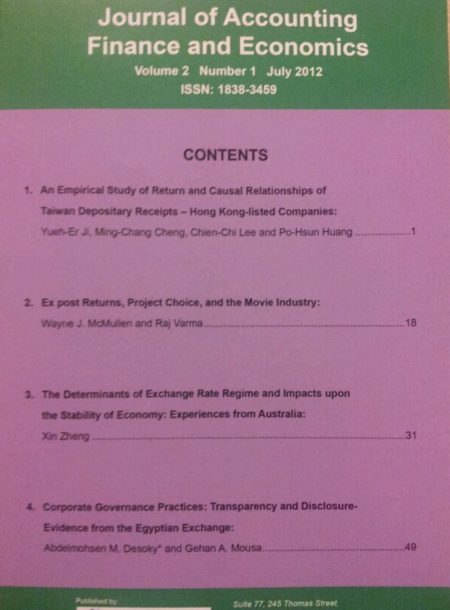Journal of Accounting, Finance and Economics
Vol. 8. No. 1. March 2018 Issue, March 2018, Pages: 15 – 32
Modeling Tax Evasion across South Asia: Evidence from Bangladesh, India, Pakistan, Sri Lanka and Nepal
Muntasir Murshed and Syed Yusuf Saadat
Mobilization of domestic revenue is of paramount importance in the context of the South Asian region since most of these regional countries are dependent on multidimensional development assistance which are expected to exhibit a decreasing trend in future. However, the low ratio of tax revenue to GDP scenario across South Asia is a major area of deep concern for the associated countries that have been ineffective in making remarkable improvements in their respective tax-GDP ratio. Thus, this paper aims to fill the gap in existing literature by modeling the tax evasion phenomenon across Bangladesh, India, Pakistan, Sri Lanka and Nepal. The authors employ annual data of relevant macroeconomic variables for the time period between 2001 and 2015. As part of the regression model, the authors express the tax-GDP ratio as a function of macroeconomic factors attributing to tax compliance in these countries. Fixed effects panel estimation techniques along with Vector Error Correction Model approach and Granger Causality test were also considered for robustness of the findings. Moreover, the authors also consider an additional model to investigate the linearity of the relationship between tax-GDP ratio and macroeconomic aggregates of national income. The results reveal that political stability and the existing conditions of the public services have positive impacts on the tax-GDP ratio. Moreover, the findings also confirm a non-linear relationship between tax-GDP ratio and per capita GDP and GDP growth rate since the estimated slope coefficients are found to be negative initially but they become positive following the inclusion of the squared terms of GDP and GDP per capita. In light of the estimations, it is found that the threshold levels of per capita GDP and GDP growth rate are 14, 563 US$ and 5.1% respectively and political instability is found to attribute to tax evasion in South Asia.

